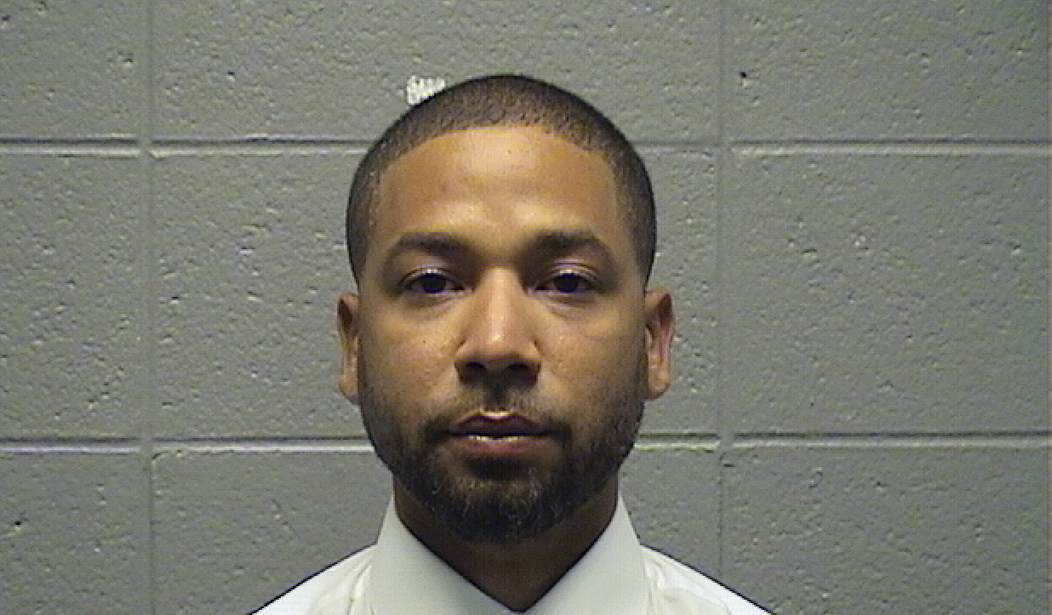The Illinois Supreme Court has thrown out the 2021 criminal conviction of actor Jussie Smollett, who staged a fake hate crime in Chicago in 2019.
Smollett’s legal team argued that a prior non-prosecution agreement with the Cook County State’s Attorney’s Office and the decision by State’s Attorney Kim Foxx to dismiss the original charges rendered the conviction invalid. The court sided with this argument, overturning the conviction.
Soros-backed State’s Attorney Kim Foxx initially dismissed all charges against Jussie Smollett after Chicago police determined he staged a hate crime, falsely claiming he was attacked by two men making pro-Trump remarks. The claims were absurd on their face, and investigators were skeptical from the beginning. However, the case unraveled quickly when the two men he hired to carry out the hoax confessed. Nevertheless, Smollett repeatedly insisted on his innocence, and Foxx eventually dropped all charges, requiring Smollett to forfeit his $10,000 bond.
Recommended: Rob Reiner Drives Himself Bonkers Post-Election, Checks Into a 'Facility'
A state appeals court previously upheld Smollett’s conviction in a 2-1 decision, but a dissenting opinion opened the door for the Illinois Supreme Court to take up the case, which Smollet's legal team successfully convinced the Illinois Supreme Court to hear his appeal earlier this year, with a brand new defense strategy. Instead of maintaining his innocence in court filings, his lawyers argue that forfeiting his bond and performing community service constituted an agreement with Foxx to avoid further prosecution. They claimed the subsequent charges that led to his conviction violated that deal.
The state supreme court ultimately bought that argument.
"Today we resolve a question about the State’s responsibility to honor the agreements it makes with defendants," the ruling, written by Justice Elizabeth Rochford, reads. "Specifically, we address whether a dismissal of a case by nolle prosequi allows the State to bring a second prosecution when the dismissal was entered as part of an agreement with the defendant and the defendant has performed his part of the bargain. We hold that a second prosecution under these circumstances is a due process violation, and we therefore reverse defendant’s conviction."
Supreme Court Justices Scott Neville, David Overstreet, Lisa Holder White, and Mary O’Brien concurred with the opinion, while Chief Justice Mary Jane Theis and Justice Joy Cunningham abstained.
NBC Chicago has more:
Smollett’s legal team had moved to dismiss the case on double jeopardy grounds, but the trial court denied both motions. His legal team also argued that he had entered into a non-prosecution agreement with the Cook County State’s Attorney’s Office, but again the trial judge denied the motion, according to the court’s ruling Thursday.
During the appeal, Smollett’s attorney, Nenye Uche, argued that a previous agreement with the State's Attorney’s office should have kept a trial from happening in the first place.
Uche told justices that Smollett and his previous attorneys had struck an agreement with Cook County State’s Attorney Kim Foxx that would have him surrender his $10,000 bond and perform community service in return for the actor not being prosecuted."Prosecutorial agreements that induce a defendant’s specific performance should be enforced,” Uche said. “Irrespective of how unpopular the defendant is in the public eye, a deal’s a deal."
But the deputy special prosecutor in the case maintained the deal not to prosecute didn’t go far enough and allowed Special Prosecutor Dan Webb to convene a grand jury and file a new case against the “Empire” star.
“Only a clear, expressed dismissal of charges with prejudice bars subsequent charges in a nolle pross situation,” Sean Wieber said.
Prosecutors also held that Smollett had not paid the city of Chicago more than $130,000 in fines and restitution related to the case, meaning he hadn't fulfilled his obligations under a non-prosecution agreement.
This story is developing.










Join the conversation as a VIP Member